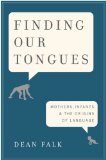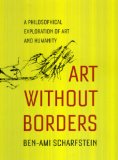
Play: How It Shapes the Brain, Opens the Imagination, and Invigorates the Soul by Dr. Stuart Brown and Christopher Vaughan (Avery, 2009) should be available on March 5.
Product Description
From a leading expert, a groundbreaking book on the science of play, and its essential role in fueling our intelligence and happiness throughout our lives.
We’ve all seen the happiness in the face of a child while playing in the school yard. Or the blissful abandon of a golden retriever racing with glee across a lawn. This is the joy of play. By definition, play is purposeless and all-consuming. And, most important, it’s fun.
As we become adults, taking time to play feels like a guilty pleasure—a distraction from “real” work and life. But as Dr. Stuart Brown illustrates, play is anything but trivial. It is a biological drive as integral to our health as sleep or nutrition. In fact, our ability to play throughout life is the single most important factor in determining our success and happiness.
Dr. Brown has spent his career studying animal behavior and conducting more than six thousand “play histories” of humans from all walks of life—from serial murderers to Nobel Prize winners. Backed by the latest research, Play explains why play is essential to our social skills, adaptability, intelligence, creativity, ability to problem solve, and more. Play is hardwired into our brains—it is the mechanism by which we become resilient, smart, and adaptable people.
Beyond play’s role in our personal fulfillment, its benefits have profound implications for child development and the way we parent, education and social policy, business innovation, productivity, and even the future of our society. From new research suggesting the direct role of three-dimensional-object play in shaping our brains to animal studies showing the startling effects of the lack of play, Brown provides a sweeping look at the latest breakthroughs in our understanding of the importance of this behavior. A fascinating blend of cutting-edge neuroscience, biology, psychology, social science, and inspiring human stories of the transformative power of play, this book proves why play just might be the most important work we can ever do.
Dr. Stuart Brown is the founder of the National Institute for Play. A sample chapter is available at the book’s website.
Thanks to Eric from Open Learning for the book suggestion!




 The Empathy Gap: Building Bridges to the Good Life and the Good Society
The Empathy Gap: Building Bridges to the Good Life and the Good Society

